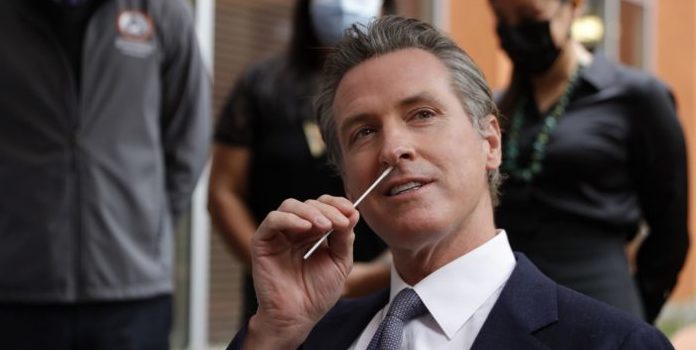(David Mastio, The Center Square) Does California need to pay Hollywood to make films in … Hollywood?
In a press release this week, Gov. Gavin Newsom pointed to the economic growth produced by subsidies for film and TV production in the state as a key part of his “California Jobs First initiative.”
“From bringing Fallout home to keeping classics in California, this program has helped our iconic, world-leading entertainment sector create tens of thousands of good jobs for Californians and generate billions of dollars for communities across the state over the past 15 years,” Gov. Newsom said.
But economists call claims about film subsidies vastly inflated. “Peer-reviewed studies are unanimous that the incentives do not spur economic growth, nor do they create a sufficient number of jobs to justify the cost,” Professor Michael Thom of the University of Southern California told The Center Square. “As California’s budget deficit balloons, taxpayers can scarcely afford to subsidize television shows.”
The California Film Commission disagrees. “California’s Film and Television Tax Credit program has continuously delivered for California’s taxpayers, ensuring the state retains production jobs while maximizing economic impact. For every tax credit dollar allocated through this program, the state can expect significant returns – not just in Hollywood, but in communities across California where our unmatched crews, talent, infrastructure and locations have made us the world’s entertainment capital,” Colleen Bell said in a statement to The Center Square.
When asked about the discrepancy, the governor’s press office defended the governor’s statement citing a study done for the Motion Picture Association which represents firms who have benefited from billions of dollars in subsidies from the program since it was put in place in 2009. The firm that conducted the analysis for the MPA previously tried to hide its connections to industry lobbyists, according to Thom and the LA Times.
The study is based on a computer model called IMPLAN developed for the U.S. Forest Service to model policy decisions about natural resource management in forests and grasslands. Economists are highly critical of the model, which costs about $1,000 and non-economists can be trained to use in a few hours.
In a peer-reviewed analysis of IMPLAN in 2019, Texas A&M Professor John Crompton derided the model as “easy for unscrupulous sponsors and their consultants to (use to) produce ‘mischievous’ analyses designed to … position their project in the minds of elected officials and taxpayers as being a key element in a community’s economy.”
He cited 25 flaws in the program, including the fact that it only counts the benefits of subsidized projects and none of the costs and that “fudged multiplier coefficients” produce inflated results.
Indeed, even the study cited by Gov. Newsom’s office acknowledges that its results may be inflated by nearly 50% as the state’s own data show that nearly half of projects that don’t get subsidies stay in California anyway.
The consensus that film and TV subsidy programs don’t work is so solid that even the think tanks on the right and left that disagree about everything else are in accord on the flaws of the programs. Michigan’s right-leaning Mackinac Center argues they don’t work and Washington’s left-wing Center for Budget and Policy Priorities sings kumbaya.
Newsom and California are not alone in pursuing what economists call a “flawed” economic development plan. Since Hawaii became the first state to create a film and TV subsidy program in the 1990s, the programs have spread to dozens of states of all political persuasions. Red states Texas and Oklahoma are in what The New York Times called a “border war” in expanding their own programs to compete with each other.

